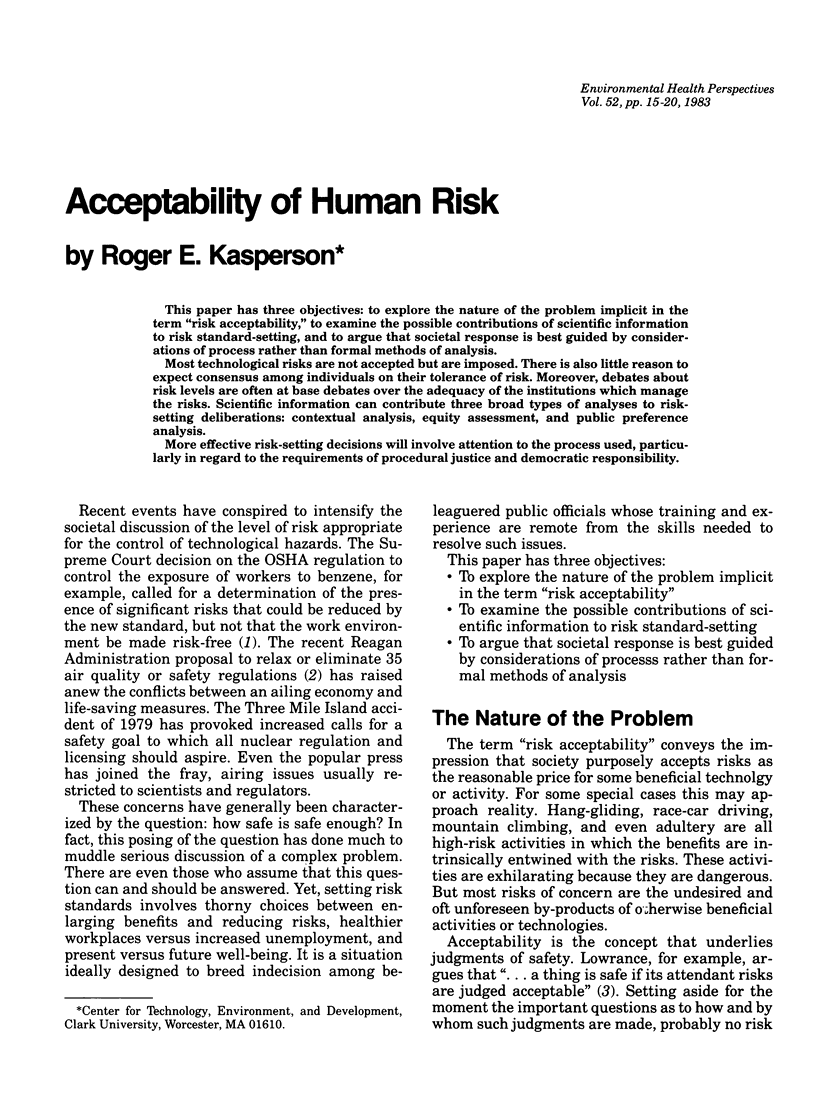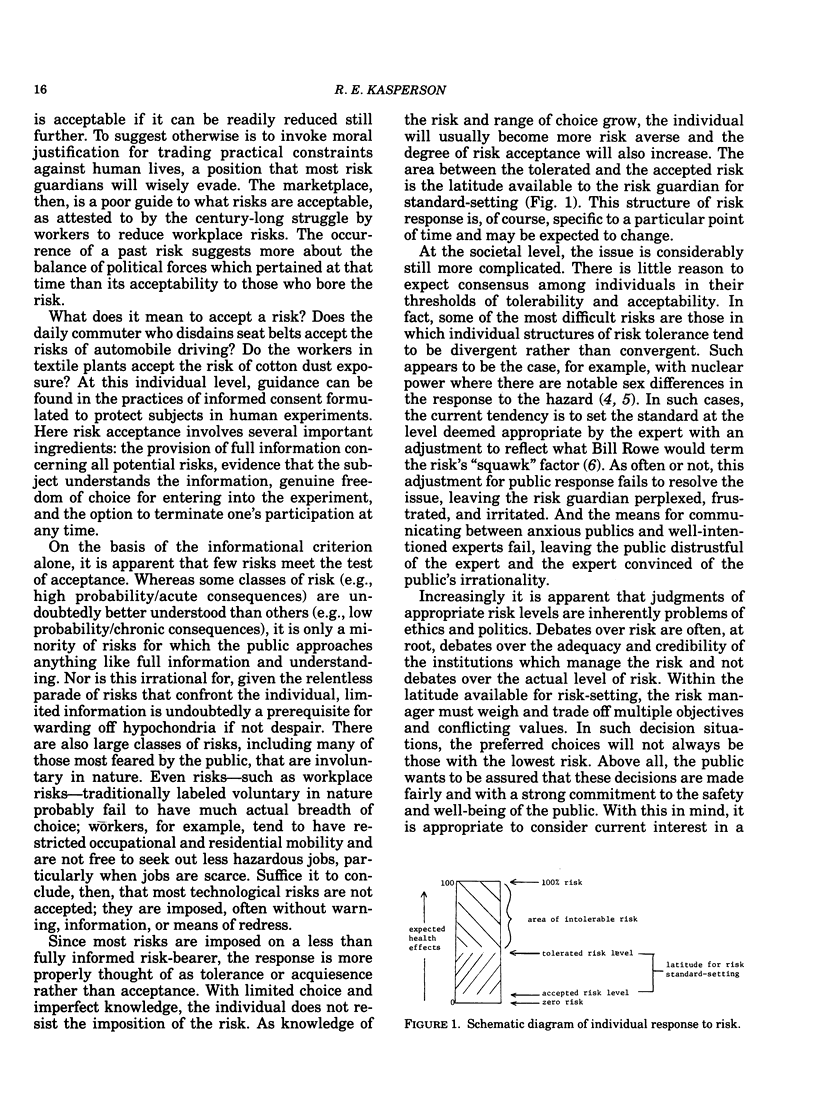Abstract
This paper has three objectives: to explore the nature of the problem implicit in the term "risk acceptability," to examine the possible contributions of scientific information to risk standard-setting, and to argue that societal response is best guided by considerations of process rather than formal methods of analysis. Most technological risks are not accepted but are imposed. There is also little reason to expect consensus among individuals on their tolerance of risk. Moreover, debates about risk levels are often at base debates over the adequacy of the institutions which manage the risks. Scientific information can contribute three broad types of analyses to risk-setting deliberations: contextual analysis, equity assessment, and public preference analysis. More effective risk-setting decisions will involve attention to the process used, particularly in regard to the requirements of procedural justice and democratic responsibility.
Full text
PDF





Selected References
These references are in PubMed. This may not be the complete list of references from this article.
- Inhaber H. Risk with energy from conventional and nonconventional sources. Science. 1979 Feb 23;203(4382):718–723. doi: 10.1126/science.419404. [DOI] [PubMed] [Google Scholar]
- Starr C. Social benefit versus technological risk. Science. 1969 Sep 19;165(3899):1232–1238. doi: 10.1126/science.165.3899.1232. [DOI] [PubMed] [Google Scholar]


